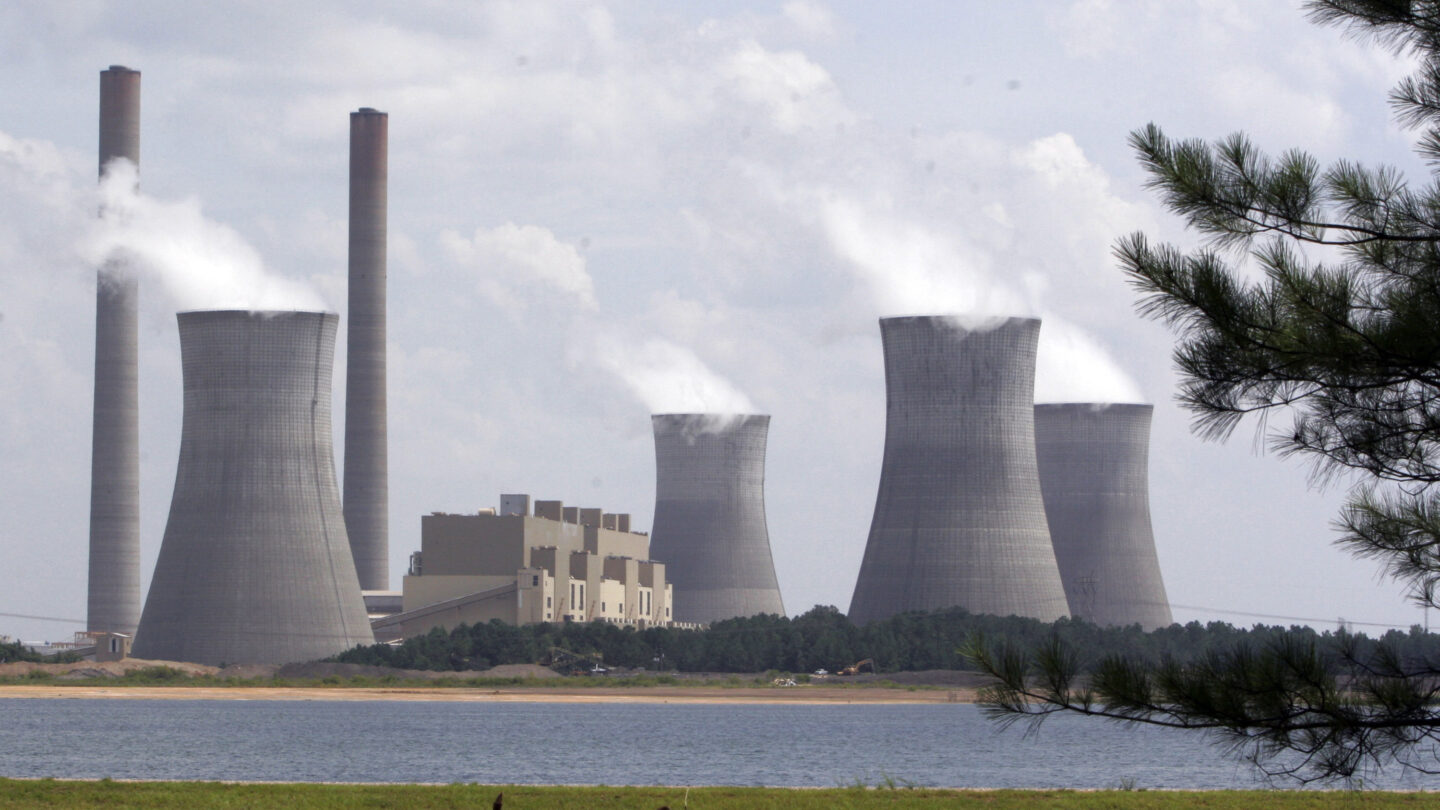Georgia coal ash pond neighbors channel frustrations through proposed EPA crackdown in Alabama

Plant Scherer in Juliette is one of the plants where Georgia Power plans to leave coal ash waste in unlined pits, where it sits in groundwater. (AP Photo/Gene Blythe, File)
Juliette resident Gloria Hammond has watched as families moved away from their homes located next to what was once the largest coal-fired power plant in the country.
On Wednesday, Hammond urged the U.S. Environmental Protection Agency to follow through with its rejection of Alabama’s proposed coal ash disposal rules. The agency’s denial is part of the Biden administration’s broader crackdown on sites EPA officials say fall short of federal requirements.
The EPA’s decision on the Alabama Department of Environmental Management’s application also has implications for Georgia, where Georgia Power operates coal-fired power plants and manages retired plants that store toxic coal ash. The environmental community has been advocating for federal and state regulators to force Georgia Power to remove coal ash and dispose of it in lined landfills to protect groundwater.
On Wednesday, the EPA held a virtual public hearing dominated by Alabama and Georgia residents opposed to loosening toxic coal ash cleanup restrictions. The federal agency is set to make a final ruling once the public comment phase concludes on Oct. 13.
During the hearing, Hammond spoke about the long-term effects of living with a contaminated well and a multitude of serious health problems that many residents of the small town north of Macon say they have experienced living near Georgia Power’s Plant Scherer, which opened in 1982.
“I’m encouraged EPA is starting to step up,” she said. “All the states in the Southeast are not being regulated right and Georgia Power and Southern Company are not doing the right thing. We are still suffering here.”
Georgia Power operates 24 coal ash ponds and landfills that are regulated by the federal government, as it moves closer to retiring its fleet of coal-burning facilities. Plant Scherer is one of the sites where the utility company plans to store coal ash in unlined pits, where it is in contact with groundwater, using the controversial “cap in place” method. Georgia Power argues the coal ash has not compromised drinking water standards.
Chris Bowers, a senior attorney in the Georgia office of the Southern Environmental Law Center, said that by denying Alabama’s application, EPA is making it clear that state regulators shouldn’t be allowed to skirt environmental regulations when it comes to toxic coal ash.
“State (coal ash) permit programs cannot simply be a cut and paste exercise whereby states can adopt the language of the federal rule, gain EPA approval to run a state permit program and then turn around and hand out state coal ash permit permits to power utilities that violate the very (coal ash) rule criteria that prohibit ash closures when they are in contact with groundwater,” Bowers said.
As Georgia Power transitions away from burning coal to generate electricity, officials have long asserted that the closure strategy complies with state and federal regulations.
The company’s closure plan involves draining most of the unlined coal-ash sites and relocating the hazardous material into dry, lined pits that it says will better protect groundwater from contamination. Georgia Power’s plans, however, still call for the toxic waste to remain permanently buried in eight ponds located on company property. In addition, the company recycles millions of tons of ash for concrete production.
To Hammond, the only feasible solution is stricter federal enforcement of ash containing mercury, arsenic and other heavy metals. She said that for too long the Georgia Public Service Commission and the state EPD have failed to protect Georgians from coal pollution.
“I don’t know what else to say,” Hammond said. “I’ve beat my head against a dead horse for a long time. I’ve encouraged EPD to please change, please look, but as you know money talks more.”
This story was provided by WABE content partner the Georgia Recorder.








